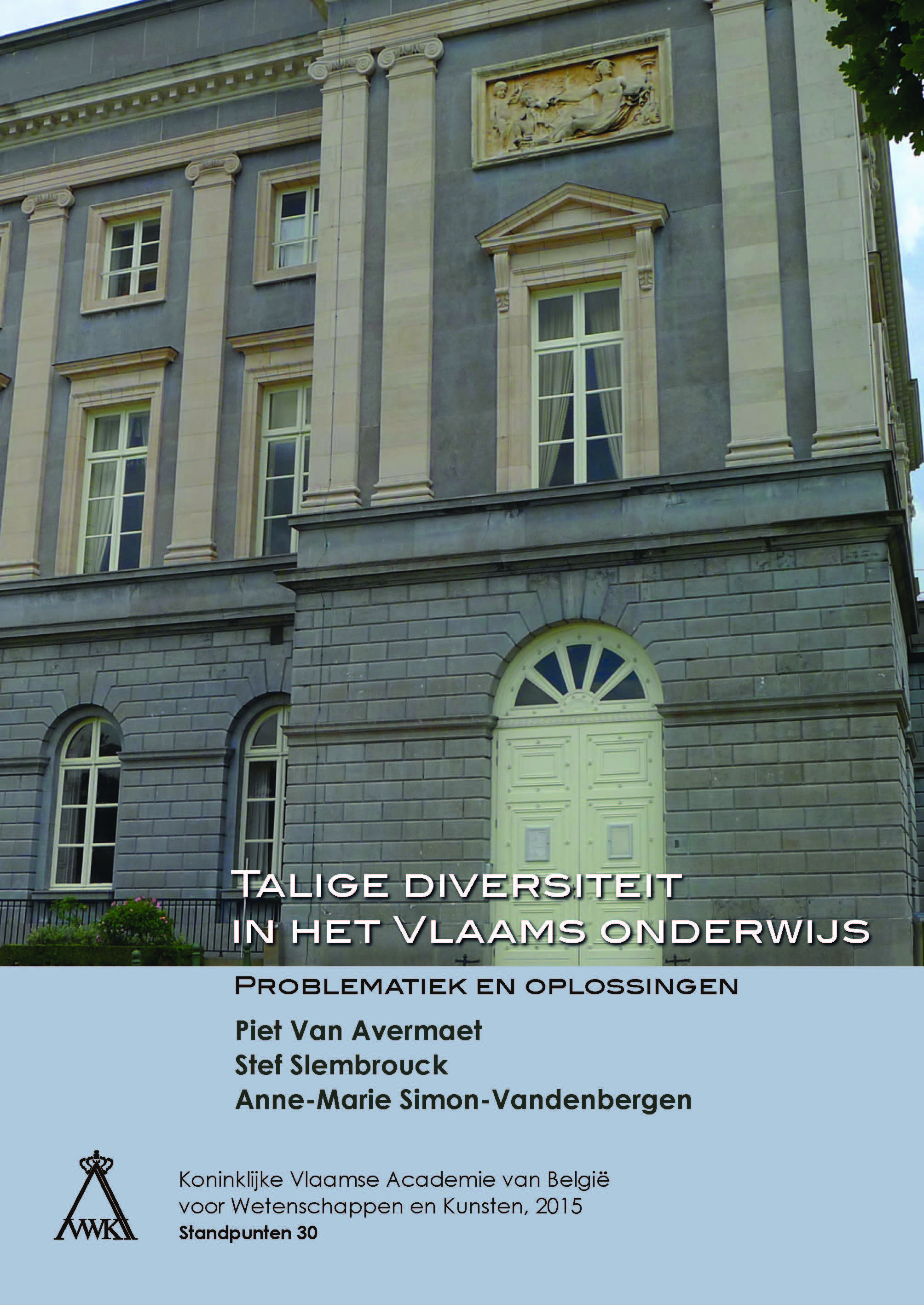Linguistic diversity in Flemish schools

Evenementen
It is obvious that Flemish society in general and its schools in
particular have become more diverse in recent decades as a result of
migration. Depending on the city or municipality and more specifically
on the neighbourhood, schools are more or less ‘mixed’ but schools with
a great number or even a majority of pupils who do not have Dutch as
their home language are no longer exceptions. The multilingual intake of
schools is a fact. The question arises whether this constitutes a
problem, and if so, what the solution is.
In this viewpoint it is
argued that a number of presuppositions governing the public debate and
educational policies need to be looked at critically and require
qualification. The generally accepted thesis is that the difficulties
experienced at school by pupils with a migration background are to be
ascribed first and foremost to their deficient competence in Dutch, and
that this problem can be solved only by a strictly monolingual policy in
the school and in the classroom. Both the stated cause of school failure
and the proposed solution are examined in this viewpoint. A critical
evaluation is needed, not only because the dominant approach clearly
fails to deliver the expected results, but also because the theses are
insufficiently supported by scientific research results.
The
viewpoint pleads for an educational policy and practice based on a more
realistic analysis and at the same time advocates a more humane
approach. Such a policy and practice put the perception of ‘home
languages other than Dutch’ as a problem in the right perspective and
take account of other factors such as social-economic background and
school attitudes, which have a greater impact than is now recognised in
the public debate and which are consequently given little attention. It
is therefore crucial that the focus in the debate should shift from an
“exclusively linguistic problem” to issues of differences in social and
cultural capital. In addition, the concept of language needs to receive
a more diversified interpretation, in which speakers are seen as having
access to functional repertoires which may or may not conform to
linguistic expectations of the school. Speaking a home language other
than Dutch and multilingualism are considered in this viewpoint as
assets to be valued in a meaningful approach to education. The viewpoint
advocates an educational model in which linguistic diversity is
exploited as didactic capital in the pupils’ learning process. This can
be described as functional multilingual learning.
Finally, there
is a need to change teachers’ perceptions, attitudes and classroom
practice. This can be done by supporting and guiding teachers in taking
concrete steps to create and strategically exploit multilingual moments
in the classroom.
Available documents
Author
-
Anne-Marie Vandenbergen
-
Stef Slembrouck
-
Piet Van Avermaet


